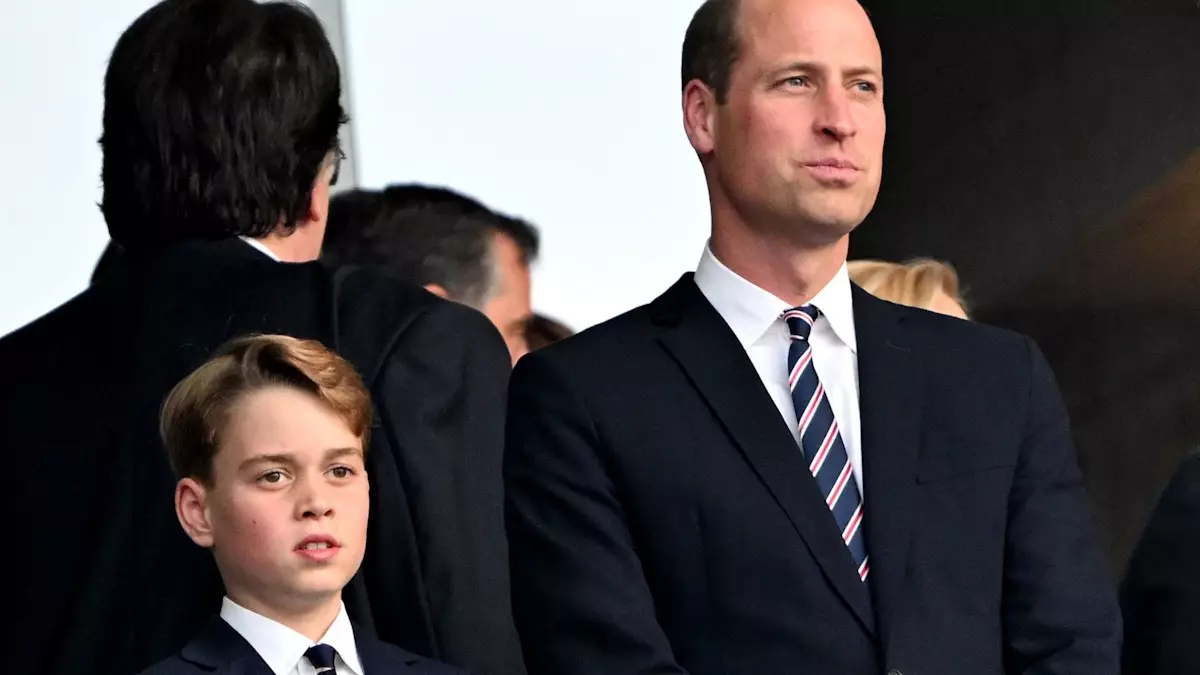The intertwining of familial love, regional allegiance, and national identity often finds expression in something as quintessentially British as football. Prince William, the Duke of Cambridge, offers a fascinating glimpse into this cultural weave through his unwavering support for Aston Villa, a club with a rich history and fervent local following. This engagement goes beyond mere fandom; it represents a legacy of passion that he hopes to pass on to his children, particularly to his eldest son, Prince George.
Prince William’s adoration for Aston Villa is deeply rooted in his childhood experiences. Unlike many members of the royal family, he has boldly claimed his allegiance to a football club, creating a unique narrative in a lineage often characterized by a certain aloofness towards popular sports. His initial encounter with Villa was catalyzed by a personal connection; he was introduced to the club by a caretaker during his formative years. This bond has only deepened over time, evolving into a passionate commitment that he now shares with his ten-year-old son.
William’s efforts to instill this passion in George reflect a broader desire to forge a bond through shared interests. However, this ambition isn’t solely about transmitting allegiance but also about navigating the complex world of football loyalties. In an attempt to safeguard George’s allegiance to Aston Villa, William took specific steps to ensure that his son didn’t become a supporter of the heavily commercialized Chelsea FC.
During a recent casual engagement with Aston Villa fans at a Birmingham pub, William humorously revealed that he had intervened decisively in George’s potential sporting choices. In a light-hearted exchange, he emphasized his intention to make sure George embraced Villa, amid the pressures of being surrounded by Chelsea fans. This candid moment resonated with the supporters present, showcasing the prince’s relatable side amid his royal duties.
The joy expressed in that informal setting underlines a philosophy that transcends football; it’s about creating meaningful connections with the past while fostering relationship-building practices in the present. The laughter that erupted from the gathered fans is evidence of how sport can unite various social strata, from royalty to ordinary citizens, creating a shared identity woven through laughter and camaraderie.
The bond between William and George has been notably reinforced at Villa Park, where they have been spotted together multiple times. These outings are not only about supporting a team; they serve as a means of mentorship and connection. William’s relationship with George is built on shared experiences, and attending matches is a conduit through which they can engage in discourse about teamwork, loyalty, and competition.
However, William has drawn a line in the sand regarding football allegiance. Although he believes that children should choose their paths freely and without coercion, his stance on Chelsea is emblematic of a sporting rivalry that reflects passionate feelings, very much alive in British culture. This protective stance shows that beneath the royal exterior lies a human being who cherishes the rivalries that fuel the sport.
The prince’s confession about being the sole football enthusiast among his royal peers points to an interesting dynamic within the monarchy. While he shares a unique bond over football with George, the elder generation remains largely indifferent to the sport. This gap offers William a rare opportunity to establish a new tradition within the royal family, one that could transform their public perception, aligning them more closely with the daily lives and loves of their subjects.
As they continue to cheer for Aston Villa, the influence of William’s choices ensures that George carries forward a legacy of football loyalty, enriched by the bonds of family and tradition. In a world where football fandom often oscillates between fierce loyalty and brand warfare, Prince William’s earnest approach to support a local team offers a refreshing perspective. Reflecting on these connections, it becomes evident that the essence of sports, especially in families, is not just about winning or losing, but about sharing experiences, forming memories, and championing a legacy that lives on through generations.

Leave a Reply